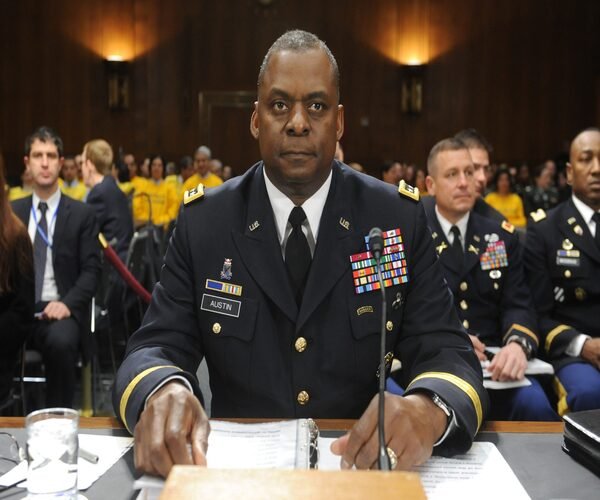On Saturday, U.S. Secretary of Defense Lloyd Austin expressed alarm about China’s refusal to discuss military crisis management, emphasizing that negotiations are necessary to avoid war.
Due to disagreements over Taiwan’s sovereignty, spying, and South China Sea territorial disputes, the US-China relationship is at its lowest point in decades.
Austin told Asia’s top security gathering, the Shangri-La Dialogue, that U.S. and Chinese defense and military chiefs must communicate to avert confrontation and promote stability in the Asia-Pacific.
“I am deeply concerned that the PRC (People’s Republic of China) has been unwilling to engage more seriously on better mechanisms for crisis management between our two militaries,” Austin told the Singapore summit.
“The more we talk, the more we can avoid misunderstandings and miscalculations that could lead to crisis or conflict.”
Li Shangfu, China’s Minister of National Defence, refused Austin’s security summit invitation this week. So on Sunday, U.S.-sanctioned general Li speaks.
The Pentagon claimed the two shook hands on Friday but did not talk.
“A cordial handshake over dinner is no substitute for substantive engagement,” Austin remarked.
After a suspected Chinese spy balloon flew across the U.S. in February, U.S. Secretary of State Antony Blinken canceled a visit to China, stalling dialogue.
In an email on Friday, Liu Pengyu, spokeswoman for the Chinese embassy in Washington, said that contact between China and the U.S. promotes understanding.
“However, now the U.S. says it wants to speak to the Chinese side while seeking to suppress China through all possible means and continue imposing sanctions on Chinese officials, institutions, and companies,” the statement stated.
On Saturday, Lieutenant General He Lei, former vice president of the Academy of Military Sciences, told the Global Times that China would meet with defense leaders from 12 countries during the summit.
Beijing aspires to dominate democratic Taiwan, one of the two nations’ most contentious security problems. China may invade Taiwan and involve the U.S.
Austin said Russia’s invasion of Ukraine showed “how dangerous our world would become if big countries could just invade their peaceful neighbours with impunity.”
He claimed the U.S. was “deeply committed” to Taiwan’s status quo and opposed unilateral changes.
“Conflict is not inevitable. “We must maintain deterrence,” Austin added. However, Austin’s remarks could lead to an Asia-Pacific conflict, including over Taiwan, according to Chinese Senior Colonel Zhao Xiaozhuo.
“It (U.S.) wants instability in Taiwan so that it can bring its soldiers to Taiwan and earn money from selling military weapons to Taiwan,” said Zhao, a researcher at China’s Academy of Military Sciences.
U.S. military officials have stated that Chinese President Xi Jinping has ordered his military to prepare for a Taiwan invasion by 2027.
“It doesn’t mean that he’s made a decision to do that,” Austin remarked when asked about Xi’s plans.
President Joe Biden has strengthened connections with Asian allies like Australia, Japan, India, the Philippines, and Taiwan.
Beijing criticized Australia’s March purchase of U.S. nuclear submarines.
The submarine program, part of the AUKUS security alliance with the U.S. and Britain, will cost A$368 billion ($250 billion) over 30 years.

































Comment Template